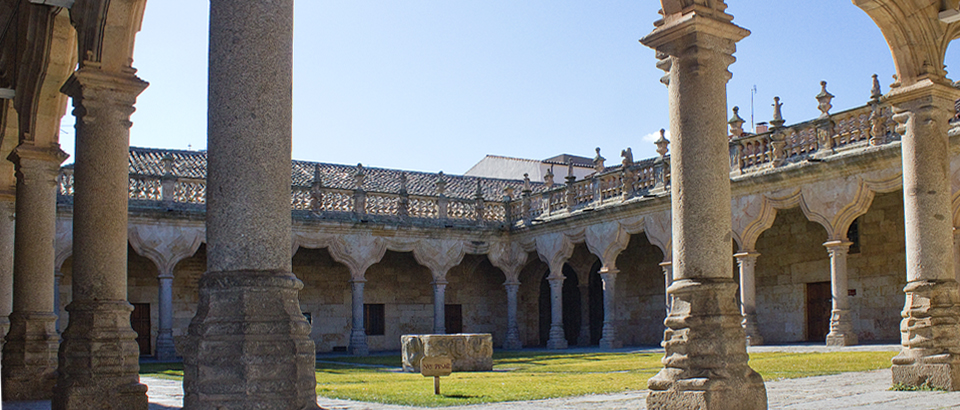- “Análisis de la muy baja fecundidad a través de las transiciones vitales: emancipación, formación de pareja y trayectoria laboral” -LifeTransFertility- (Ref: PID2021-123875NB-I00). Proyecto de Generación de Conocimiento 2021, Modalidad: Investigación no Orientada Tipo B. Ministerio de Ciencia e Innovación. IP1. Alberto del Rey (USAL), IP2. Rafael Grande (UMA). Período: 2022-2026. Presupuesto: 76.000€.
Resumen:
Este proyecto de investigación se enfoca en el análisis de la baja fecundidad en España adoptando una perspectiva de curso de vida y considerando los efectos derivados de tres transiciones vitales en el paso a la vida adulta de las mujeres: la salida del hogar paterno, la
formación de parejas estables y la trayectoria laboral. El objetivo es estudiar los efectos de dichas transiciones en el primer, segundo y tercer nacimiento, diferenciando entre nativos e inmigrantes, y considerando las características sociodemográficas y los antecedentes
familiares de cada mujer y de sus parejas.
La muy baja fecundidad que se registra en España desde hace décadas y el hecho de que sea uno de los países con mayor brecha entre el número de hijos deseados y el número de hijos concebidos, representan una de las problemáticas sociales y demográficas con más
importantes implicaciones en materia de políticas públicas.
Nuestra hipótesis de partida es que la edad y las condiciones en que se producen las transiciones vitales consideradas afectan a la fecundidad de las mujeres y al logro de toda su descendencia deseada. Esto nos permitirá generar tanto conocimiento científico en
nuestros campos de estudio, como aportar conocimiento aplicado para las políticas públicas que quieran hacer frente al reto demográfico de la baja fecundidad y a proponer medidas tendentes a mejorar el bienestar personal facilitando y favoreciendo el logro de la
descendencia deseada de las mujeres y sus familias.
Para el análisis se van a utilizar tres fuentes de datos: la Encuesta de Fecundidad de 2018, y los Censos de Población de 2011 y de 2021 con los datos vinculados de nacimientos del Movimiento Natural de la Población, todas ellas del Instituto Nacional de Estadística. Con
estas fuentes de información vamos a aplicar diferentes modelos de supervivencia y análisis longitudinales que permiten considerar el efecto y las condiciones en que se produce la salida del hogar, la formación de una pareja estable y el acceso-trayectoria en el mercado
de trabajo, además de considerar los diferentes órdenes entre estas transiciones, para medir su impacto en la fecundidad de diferentes órdenes y orígenes.
Summary:
This research project focuses on the analysis of low fertility in Spain by adopting a life course perspective and considering the effects derived from three life transitions in women’s entry into adulthood: leaving the parental home, the formation of stable couples and the
labour trajectory. The aim is to study the effects of these transitions on the first, second and third births, differentiating between natives and immigrants, and considering the socio-demographic characteristics and family background of each woman This research project focuses on the analysis of low fertility in Spain by adopting a life course perspective and considering the effects derived from three life transitions in women’s entry into adulthood: leaving the parental home, the formation of stable couples and the labour trajectory. The aim is to study the effects of these transitions on the first, second and third births, differentiating between natives and immigrants, and considering the çsociodemographic characteristics and family background of each woman and their partners.
The very low fertility recorded in Spain for decades and the fact that it is one of the countries with the greatest gap between the number of children desired and the number of children conceived represent one of the social and demographic issues with the most important public policy implications.
Our main hypothesis is that the age and conditions under which the life transitions considered occur affect women’s fertility and the achievement of all their desired offspring. This will allow us to generate both scientific knowledge in our fields of study and to provide applied knowledge for public policies that aim to address the demographic challenge of low fertility and to propose measures to improve personal well-being by facilitating and favouring the achievement of desired offspring for women and their families.
Three data sources will be used for the analysis: the 2018 Fertility Survey, and the 2011 and 2021 Population Censuses with the linked data on births from the Natural Movement of the Population, all of them from the Spanish National Institute of Statistics. With these data sources we will apply different survival models and longitudinal analyses that allow us to consider the effect and conditions under which the exit from the household, the formation of a stable couple and the access-trajectory in the labour market take place, as well as considering the different orders between these transitions, in order to measure their impact on fertility of different orders and origins.






Comentarios recientes